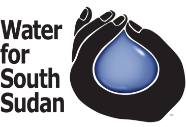Long Time Supporter, Bonnie Lloyd, Honors Her Granddaughters
Bonnie Lloyd had just received some life-changing news when she attended a presentation from Water for South Sudan (WFSS). Her next decision would affect families in South Sudan for years to come.
“I had just learned that my middle son and his wife were going to have a child and I was going to be a grandma for the first time,” Lloyd, a retired anthropologist, recalls. “So, as I was sitting there watching the presentation, I said to myself, ‘Wow! This is what I want to do for my grandbaby! So much better than a fancy blanket or something that will be outgrown and forgotten in a few years.’'“
She made the decision then and there to sponsor a well in her granddaughter Mikaela’s name, and urges other grandparents to also consider sponsoring wells in honor of their grandchildren.
Based in Wau, WFSS’s operations team works to provide access to clean water in remote villages. The organization collaborates with local government and community leaders to determine the placement of wells. These wells are drilled during South Sudan’s dry season, from December to May. Each well, which takes roughly four days to build, serves 500 to 1,000 people. WFSS aims to drill 40 wells each year, while also rehabilitating older wells and providing hygiene education for community members. So far, WFSS has drilled more than 500 new wells.
Lloyd loved the idea of her granddaughter growing up knowing that her birth had inspired a gift that would change lives.
“This would be lasting, and it will be with her all her life,” she says. “She would go through all her growing years knowing that just by virtue of her birth, something great had happened for other people.”
Lloyd put her plan into action. A retiree who earns income through rental properties, she decided to put some proceeds from a recent sale toward a well to honor her first granddaughter; Mikaela’s well was drilled in 2010. When her second grandchild Clara was born, Lloyd decided once again to eschew the requisite onesie and give Clara a gift that would last a lifetime. “This time, I needed to save up and pay for it little by little, so Clara didn’t get her well until she was eight years old.” Clara’s well was drilled in 2020.
Lloyd’s decision to give to WFSS stemmed from her connection to the organization launched by Salva Dut, a “Lost Boy of Sudan” who worked at her church. A civil war forced Dut to flee his home in southern Sudan as an 11-year old, joining thousands of boys and young men who journeyed on foot to seek refuge in camps in Ethiopia and Kenya. After ten years in the camps, Dut eventually found his way to Rochester, New York.
When Dut learned his father was still alive in southern Sudan but suffering from a disease caused by waterborne parasites, he pledged to help his nation by bringing clean water to vulnerable communities. He founded WFSS to create sustainable systems to not only ensure long-term access to clean water, but to also empower people to improve their health, economy, and access to education. When women and girls no longer have to spend hours a day walking for water, a new future emerges. The focus on creating a viable solution continues to impress Lloyd.
“When a well went in, a village grew up around it,” she says. “So it wasn’t just providing water, it was providing a hub and it would blossom in many ways. Schools followed and businesses followed, and community followed, and I thought, ‘Wow, that’s a lot of bang for your buck.’”
While she was moved emotionally, Lloyd also was impressed by WFSS’ fiscal and operational competence
Additionally, WFSS has more than one avenue for donations. For example, since 2014, more than 800 schools have participated in the organization’s Iron Giraffe Challenge, raising more than $2 million—the equivalent of 133 new wells—for the people of South Sudan.
Lloyd has seen these communities in action. She has visited Africa twice, absorbing the beauty and authenticity of the cultures there. Lloyd also had the opportunity to visit Mikaela’s well in the village of Adiet in South Sudan and met with village chief Maiwen Wol to learn more. Not only do wells mean access to clean water, it means that girls can attend school instead of walking hours each day fetching water. Educated girls can change a nation.
Sponsoring two wells through WFSS has been an extremely gratifying experience for Lloyd. Mikaela and Clara will grow up knowing that the wells sponsored in their names will give other children the clean water they need not only to survive, but thrive. She urges other givers, especially grandparents, to consider establishing personal connections to organizations, and give lasting gifts that make a difference in honor of loved ones.
“Do what heals your heart, because it’s a broken world,” Lloyd says.

